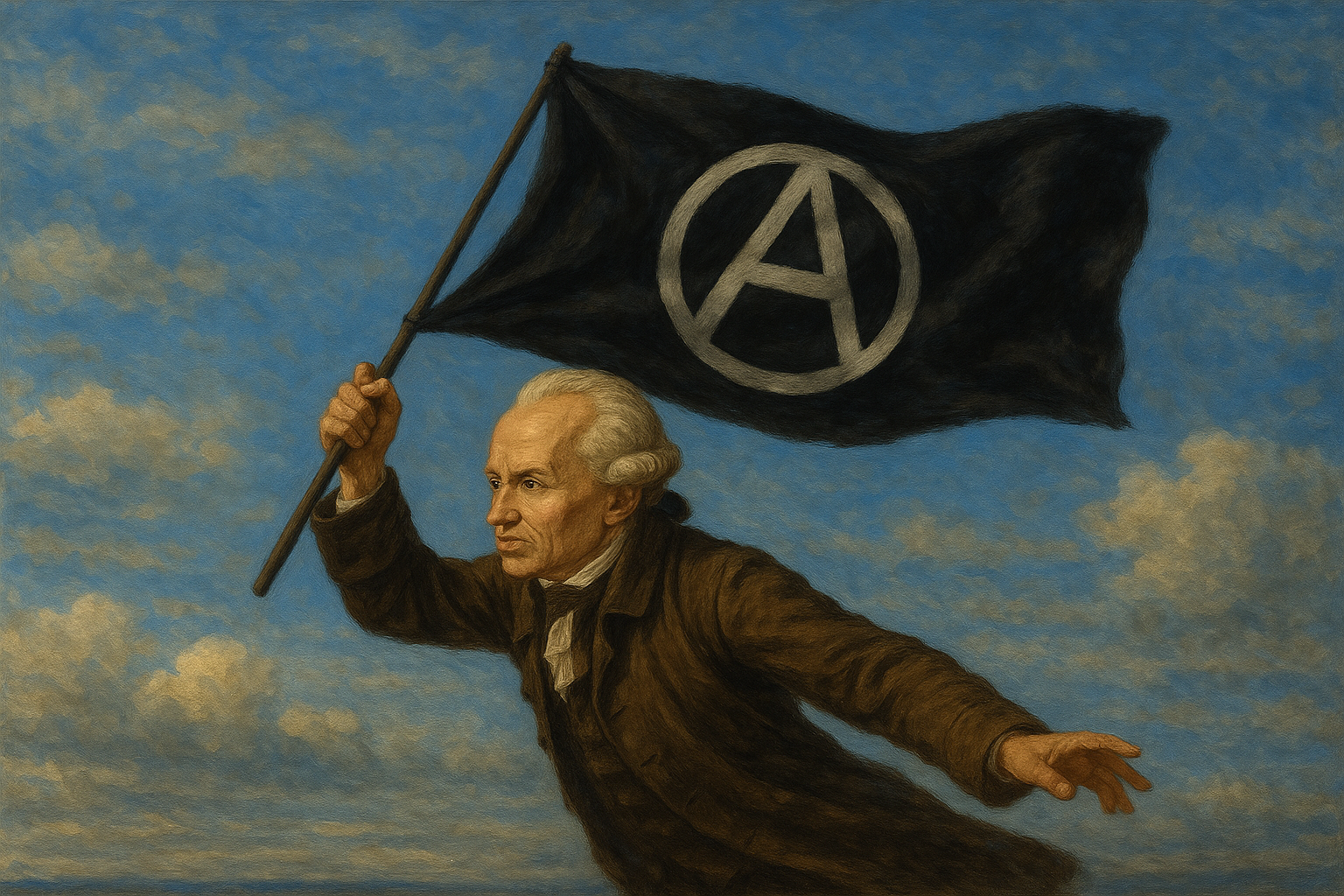Anarchy is often misunderstood as chaos or disorder. In truth, anarchy means the absence of imposed domination — a society where every individual is respected as an end in themselves. Far from being a denial of order, anarchy is a moral and social order rooted in freedom, mutual recognition, and voluntary cooperation. It can be seen as the realization of what Kant called the kingdom of ends, and what Locke described through the doctrine of natural rights. Both converge in the idea that true community is not imposed by rulers but emerges freely, most clearly in the market.
1. Natural Rights and the Dignity of the Individual
Natural rights theory, as articulated by John Locke, asserts that individuals inherently possess rights to life, liberty, and property. These rights are not granted by governments; they are pre-political, universal, and inalienable. They stem from human nature itself and constrain any attempt at external authority.
In an anarchist framework, natural rights are fully respected because no central power exists to override them. Life cannot be sacrificed to the state’s wars, liberty cannot be curtailed by its decrees, and property cannot be seized for “the greater good.” Anarchy secures natural rights precisely by refusing to legitimize institutions that violate them.
2. The Categorical Imperative and the Kingdom of Ends
Kant’s categorical imperative complements natural rights by grounding them in reason. It commands us to act only according to principles we could will as universal laws and to treat humanity always as an end, never merely as a means.
In practice, this means coercion is immoral: to use another person without their consent is to reduce them to a tool. Whether through slavery, taxation, or collectivist conformity, coercion violates the categorical imperative. Anarchy, by rejecting coercion, embodies Kant’s moral law at the social level: it creates the kingdom of ends, where individuals interact freely and recognize one another’s dignity.
3. The Market as the True Community
This moral framework finds its social expression in the market. The market is not an institution imposed from above, but the spontaneous network of voluntary exchanges. When a baker trades bread with a roofer, both pursue their own ends, yet both recognize their needs and serve the other as the same in a voluntarily way. The market is thus a genuine community: one built on mutual benefit, not sacrifice.
Unlike collectivist experiments or states, which demand conformity and sacrifice for abstract goals, the market respects the differences of individual needs and talents. It harmonizes freedom with cooperation, without coercion or domination.
4. Why States and Collectivism Fail
States and collectivist communes fail precisely because they deny both natural rights and the categorical imperative. By claiming to act for the “common good,” they violate liberty, confiscate property, and subordinate individuals to abstractions like “the nation” or “the people.” In doing so, they reduce persons to means, not ends — collapsing both moral law and natural rights.
Conclusion
Anarchy as the kingdom of ends unites two great moral traditions:
- Natural rights theory identifies the rights that must be preserved.
- The categorical imperative explains why those rights are binding and how coercion is unjustifiable.
Together, they provide a philosophical and ethical foundation for a society without rulers — a society of free individuals, bound only by reason, respect, and voluntary cooperation. The market, as the living web of exchanges, becomes the true community: one where dignity is preserved, freedom is real, and each human being is recognized as an end in themselves.


Leave a Reply